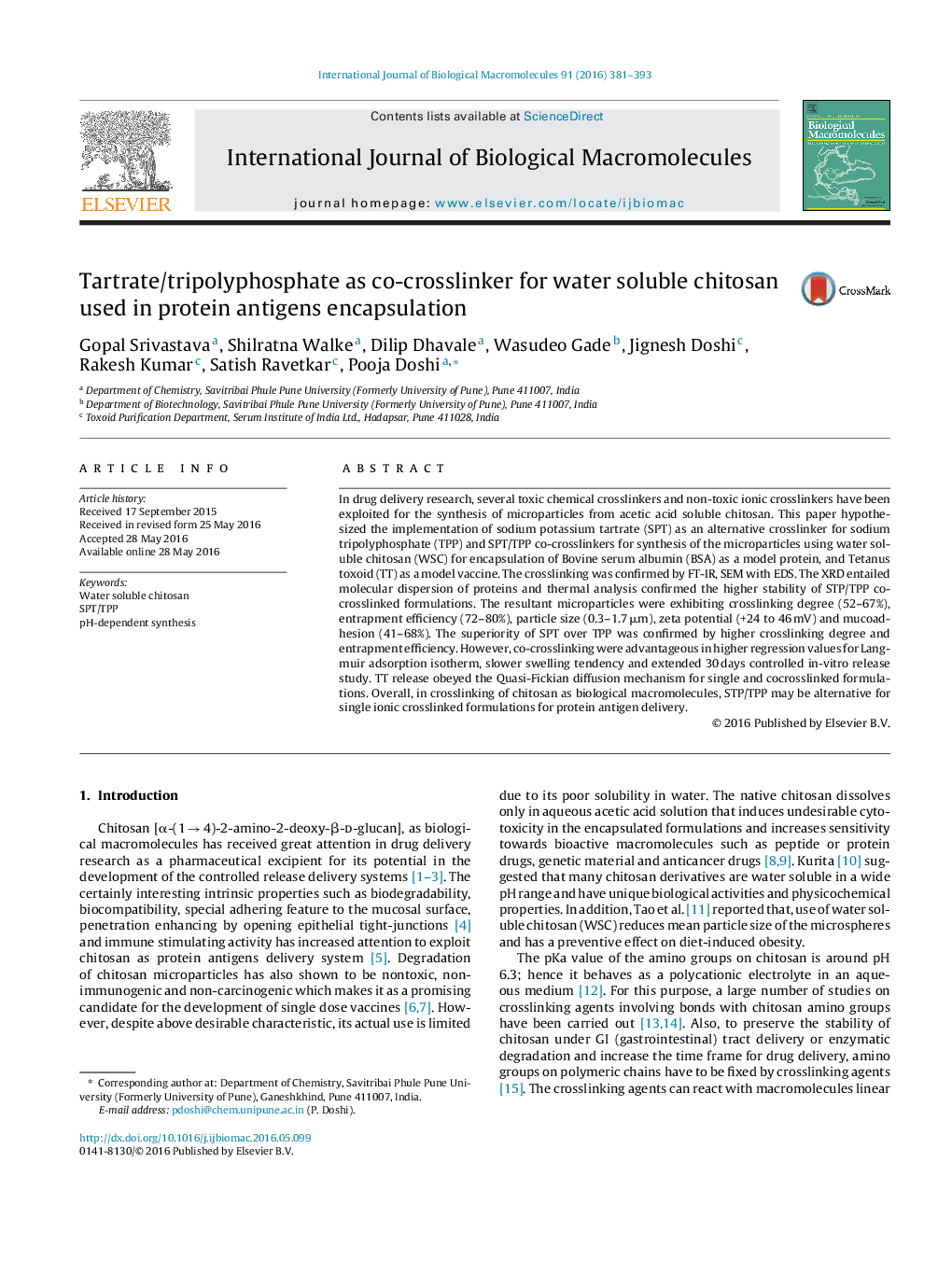| Article ID | Journal | Published Year | Pages | File Type |
|---|---|---|---|---|
| 1985639 | International Journal of Biological Macromolecules | 2016 | 13 Pages |
Abstract
In drug delivery research, several toxic chemical crosslinkers and non-toxic ionic crosslinkers have been exploited for the synthesis of microparticles from acetic acid soluble chitosan. This paper hypothesized the implementation of sodium potassium tartrate (SPT) as an alternative crosslinker for sodium tripolyphosphate (TPP) and SPT/TPP co-crosslinkers for synthesis of the microparticles using water soluble chitosan (WSC) for encapsulation of Bovine serum albumin (BSA) as a model protein, and Tetanus toxoid (TT) as a model vaccine. The crosslinking was confirmed by FT-IR, SEM with EDS. The XRD entailed molecular dispersion of proteins and thermal analysis confirmed the higher stability of STP/TPP co-crosslinked formulations. The resultant microparticles were exhibiting crosslinking degree (52-67%), entrapment efficiency (72-80%), particle size (0.3-1.7 μm), zeta potential (+24 to 46 mV) and mucoadhesion (41-68%). The superiority of SPT over TPP was confirmed by higher crosslinking degree and entrapment efficiency. However, co-crosslinking were advantageous in higher regression values for Langmuir adsorption isotherm, slower swelling tendency and extended 30 days controlled in-vitro release study. TT release obeyed the Quasi-Fickian diffusion mechanism for single and cocrosslinked formulations. Overall, in crosslinking of chitosan as biological macromolecules, STP/TPP may be alternative for single ionic crosslinked formulations for protein antigen delivery.
Keywords
Related Topics
Life Sciences
Biochemistry, Genetics and Molecular Biology
Biochemistry
Authors
Gopal Srivastava, Shilratna Walke, Dilip Dhavale, Wasudeo Gade, Jignesh Doshi, Rakesh Kumar, Satish Ravetkar, Pooja Doshi,
